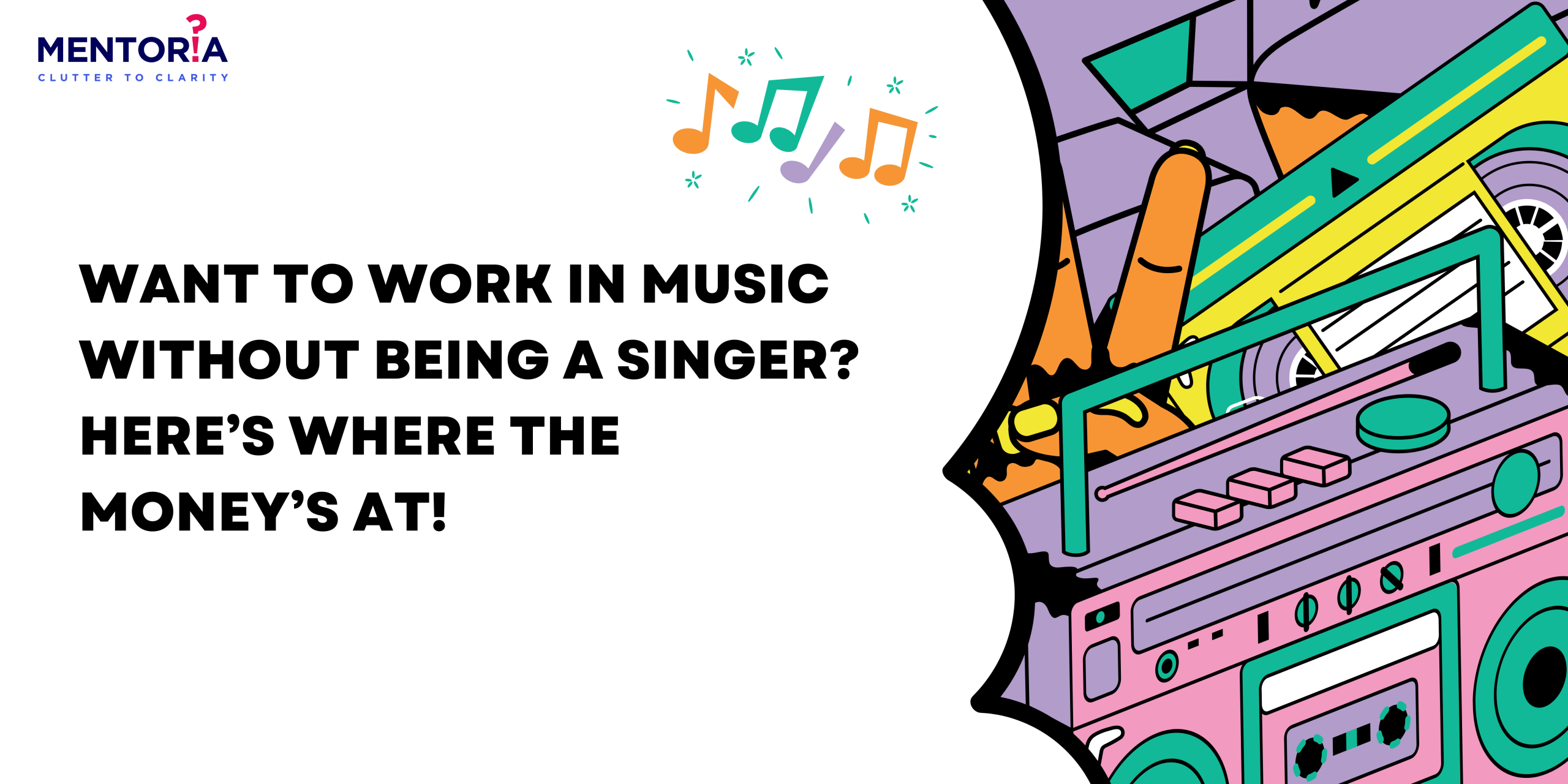Want to Work in Music Without Being a Singer? Here’s Where the Money’s At

Careers in Music That Don’t Involve Singing — But Still Pay
Not a great singer? Can’t play the guitar without Googling the chords every time? Still obsessed with music?
Good news: You don’t need to headline a tour or win a reality show to make a career in the music industry. In fact, some of the most powerful (and best-paid) roles in music happen way offstage.
Here are high-impact, creative and surprisingly lucrative music industry careers that don’t involve grabbing a mic.
1. Music Producer (aka The Real Architect)
What they do:
Producers shape the sound of a track — they decide how it builds, drops, flows. They work with artists, arrange instrumentals, mix tracks, and create the overall vibe.
Where the money’s at:
Big producers often charge ₹50K to ₹5L+ per track, depending on who they’re working with. Add sync deals, ad jingles, or OTT soundtracks, and it stacks up fast.
How to get started:
Learn DAWs like Ableton, FL Studio, Logic Pro. Start producing your own stuff or collaborate with indie artists. You can train formally or start from YouTube tutorials and build a portfolio.
2. Audio Engineer (aka The Sonic Surgeon)
What they do:
These are the people who make a track sound clean, punchy, and crisp. They handle mixing and mastering — technical but crucial stuff.
Where the money’s at:
Freelance engineers charge ₹2K to ₹1L+ per project. Studios also hire full-time engineers. If you get into film or live sound gigs, rates go even higher.
How to get started:
Take certified courses in audio engineering. Intern at studios. Learn how to troubleshoot on the fly and develop a killer ear for detail.
3. Music Supervisor (aka The Person Who Puts Songs in Films, Ads, OTT)
What they do:
They pick songs for movie scenes, ad campaigns, or OTT montages. You need to understand emotion, storytelling, licensing, and budgets.
Where the money’s at:
Supervisors can earn project-wise or get hired by studios and ad agencies. In India, it’s still a growing field — but internationally, it’s huge.
How to get started:
Intern with a music label or ad agency. Understand copyright. Build playlists that match mood boards. Learn how sync licensing works.
4. Lyricist or Composer
What they do:
Write the actual words or melodies behind a song. Not all singers write their own lyrics — many hire full-time lyricists or composers.
Where the money’s at:
TV shows, Bollywood, ads, YouTube creators — everyone needs original songs. A strong track record can lead to royalties and serious cash.
How to get started:
Write and publish your own stuff. Collaborate with music producers and singers. Enter lyric writing contests. Use platforms like Kompoz, SoundBetter or Instagram reels to showcase your work.
5. Music Marketer & A&R (aka The People Who Get You Noticed)
What they do:
Run campaigns, build artist brands, pitch to Spotify editors, negotiate deals, spot the next viral hit. If you love trends, TikTok, and hustle — this is for you.
Where the money’s at:
Marketing heads at music labels earn ₹5L–₹30L per year. Indie consultants charge per release or campaign. A&Rs often get a cut from deals they close.
How to get started:
Work with indie artists. Build playlists. Study what makes songs go viral. Intern at music labels, distribution platforms, or digital agencies.
Bonus: Work in Music Tech
Companies like Spotify, Dolby, Tidal, even Indian startups like Beatoven.ai or OKListen are hiring music lovers with tech, design, or marketing skills. So even if you’re not creating music, you can still work in the ecosystem.
Feeling Overwhelmed?
Music is no longer just about talent — it’s about strategy, skills and clarity. If you’re passionate but unsure how to break in, that’s where Mentoria Connect helps.
Use our AI assistant MOJO to figure out which role fits your personality and skills
Book a mentor who actually works in music — from producers to composers to managers — and learn how they broke in
You don’t have to be on stage to belong in the music industry.
Some of the most influential people in music never sing a note.
They just know where the real power lies — behind the scenes.






